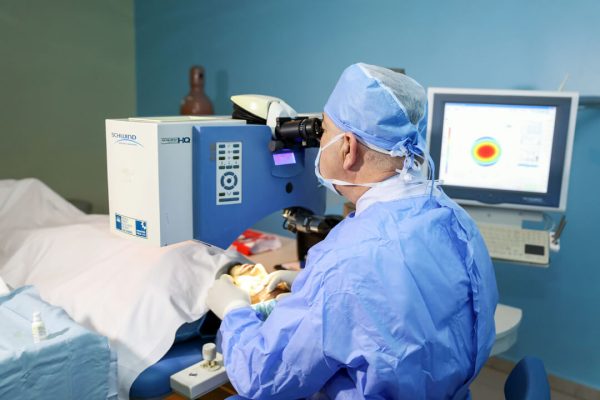Nurses are vital in the healthcare industry, and there is a wide variety of specializations, making it one of the most rewarding and diverse careers to pursue. Some specializations are common, such as registered nurses (RN), while others are a little less well-known. From geriatrics to heart health, there are numerous specializations in which nurses can work.
Thanks to the ever-growing nursing shortage, aging population and increasing work stress after the pandemic, nursing professionals are constantly in demand. According to the Bureau of Labor Statistics (BLS), employment of RNs is projected to grow 6% from 2021 to 2031.
Nursing specializations
Becoming an RN is just one of the options. There are several possible options available to students who are interested in pursuing a career in nursing. To support these aspirants, an online post-master’s FNP degree program from Rockhurst University can make a difference. Even if you’ve chosen a master’s in one specialty, you can earn a second master’s degree as a family nurse practitioner. These degrees offer higher flexibility and convenience to continue working toward your professional goal. Also, you have the opportunity to earn a higher salary and have a more autonomous working style. By studying at Rockhurst University, the full clinical placement and clinical hours mean you’ll hone your specialist skills further and deliver excellent patient care.
Let’s take a look at some of the dozens of available nursing specializations.
Registered nurse (RN) and family nurse practitioner (FNP)
As an RN, nurses work in various settings such as hospitals, clinics or residential care facilities. They perform a number of duties, not limited to monitoring and recording patient information, coordinating patient care, and basic procedures such as changing bandages.
Similarly, FNPs are advanced practice nurses who have more responsibilities than RNs. They can diagnose and treat patients independently without a physician. FNPs work with patients of all ages and are usually focused on preventive treatment and treating patients with acute and chronic illnesses.
Cardiac nurse and critical care registered nurse (CCRN)
Cardiac nurses specialize in cardiology and heart health. These nurses help treat and educate patients in cardiac facilities. They interact with patients with chronic or acute heart conditions in either in-patient or out-patient settings. Cardiac nurses can also assist with surgeries and help patients before and after procedures.
CCRNs care for patients suffering from life-threatening illnesses or injuries. They perform essential tasks such as infusing blood, cleaning wounds, changing bandages and medicine administration. These professionals are trained specially to handle any emergency situation.
Geriatric nurse
Geriatric nurses are trained to work with older individuals. They help treat their illnesses and maintain their quality of life. These nurses assist physicians in caring for patients suffering from age-related diseases such as dementia, arthritis and Alzheimer’s.
Forensic nurse
Forensic nurses work with abuse and assault victims primarily. With specialized training, these nurses can sensitively care for their patients. Some forensic nurses also take up a cross-disciplinary role in law enforcement. They gather photographic evidence of violence, assist coroners and provide testimony in court.
School nurse
School nurses work with students from elementary, middle or high school. They are responsible for providing a primary point of care contact in educational institutions. They treat minor student injuries, manage their medications, perform basic health screenings, and collaborate with teachers to ensure that the students’ health and well-being are prioritized.
Surgical nurse
Surgical nurses support patients during surgical procedures. Preparing patients for surgery, monitoring their recovery, and assisting surgeons in operating theatre all fall under the responsibilities of surgical nurses.
Substance abuse nurse
Substance abuse nurses work with individuals with substance addiction. They offer medical and emotional support to their patients in different workplace settings, including detox centers, hospitals, prisons, mental health centers and more. These nurses also help individuals with substance addiction connect with support groups.
Public health nurse
Public health nurses have a more collaborative role. They connect with other healthcare professionals and public leaders to educate people about best health practices and promote healthy lifestyles across communities. They also advocate for health policy changes for the betterment of healthcare practices for the community. Public health nurses are trained in health education and can also help monitor health-related trends.
Neonatal nurse and certified nurse midwife
Neonatal nurses or NICU nurses are responsible for working with premature and severely ill newborns. They are highly trained to care for babies in hospital neonatal intensive care units and work with ICU doctors, nurses and other professionals. Neonatal nurses also conduct neonatal tests during pregnancy and create care plans for pregnant mothers.
Nursing midwives work with gynecologists and obstetricians to provide care to expectant mothers throughout the pregnancy and childbirth process. They examine patients, monitor pregnancy progress, assist with delivery, and educate new parents about newborn care.
Pediatric nurse
Pediatric nurses work primarily with children and adolescents. They are specially trained to care for them in hospitals, clinics or health centers. Pediatric nurses usually work with pediatricians and other professionals while performing duties such as routine physicals.
The ABP ITE (American Board of Pediatrics In-Training Examination) is required for nurses interested in specializing in Pediatrics, and it is critical to prepare for the exam in order to pass. The American Board of Pediatrics practice questions from True Learn are a crucial tool for better preparing for this crucial exam because they have been meticulously prepared to mimic the substance and format of the ABP ITE exam, allowing you to become acquainted with the types of questions you‘ll face and improve your exam performance.
Psychiatric mental health nurse practitioner (PMHNP)
PMHNPs assess, diagnose and treat individuals with substance abuse and mental health disorders. They work in collaboration with psychiatrists and can independently prescribe medications and therapy to their patients. PMHNPs usually work at correctional facilities, mental health centers and psychiatric facilities.
Travel nurse
Travel nurses work in underserved regions to alleviate shortages in these areas. They provide care by administering medications, performing tests, diagnosing symptoms and communicating with physicians.
Oncology nurse
Oncology nurses are RNs who care for cancer patients. They monitor the patient’s progress, administer medications, and provide education to patients and their families. Usually, these nurses work with other nurses and physicians in cancer-treatment clinics and hospitals.
Conclusion
From family practice to neonatology, there are multiple specializations for nurses, each with its positives. There is no need to compromise your interests with so many options available. You can start your journey toward a rewarding and noble profession by finding a specialization that fits your requirements and preferences. Several universities offer online degrees that can help redirect your career to your desired specialization without compromising your current professional commitments.





